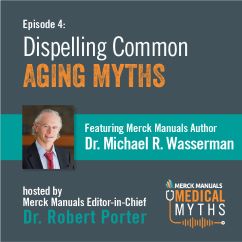Quality of life (QOL) is the degree to which a person is healthy, comfortable, and able to participate in or enjoy special occasions and life activities. It is critical for health care professionals to take quality of life into account when establishing each patient’s goals of care and to use it as a guide for all care decisions.
When discussing QOL with patients, caregivers (both formal and informal), other health care personnel, and policy makers, health care professionals need to consciously avoid using language and assuming attitudes that suggest age bias, which negatively affects the patient's perception of what QOL could or should be.
Health-Related Quality of Life
How health affects quality of life is variable and subjective. Health-related quality of life has multiple dimensions, including the following:
Absence or presence of distressing physical symptoms (eg, pain, dyspnea, nausea, constipation)
Quality of emotional well-being (eg, happiness, absence of anxiety)
Physical and cognitive functional status (eg, capacity to do activities of daily living and higher-order functions, such as pleasurable activities)
Nature and quality of close interpersonal relationships (eg, with family members and friends)
Ability to participate in and enjoy social activities
Degree of satisfaction with medical aspects of and financial arrangements for health care
Sexuality, body image, and intimacy
Influences
Some of the factors that influence health-related quality of life (eg, reduced life expectancy, cognitive impairment, disability, chronic pain, social isolation, functional status, dependency on caregivers) may be obvious to health care professionals; however, some factors may not be, and professionals may need to ask patients or their caregivers about other factors, especially social determinants of health. Social determinants of health (SDOH) are the conditions in the places where people live, learn, work, and play that affect a wide range of health and quality of life risks and outcomes.
Other important factors include cultural influences, religion, personal values, and previous experiences with health care. However, how factors affect quality of life cannot necessarily be predicted, and some factors that cannot be anticipated may have effects.
Also, perspectives on quality of life can change. For example, after the death of a spouse, a person's quality of life may change and affect care goals.
Assessment of Quality of Life
Barriers to assessment
Assessing a patient's perspective on quality of life may be difficult for the following reasons:
Such an assessment is not always taught or emphasized sufficiently in traditional medical education, which tends to be focused on diagnosis and prolongation of life.
Quality of life is a subjective, individual experience, so decision models cannot be applied to individual patients.
Quality of life is influenced by cultural factors (eg, for goals and values), and they must be assessed.
Quality of life assessment and communication must account for each patient's literacy levels (including health literacy) and language skills.
Assessing the patient’s perspectives on quality of life takes time because it requires thoughtful conversation between patient and health care professional, and there often is not enough time allotted for these in-depth conversations during traditional fee-for-service–based health care delivery models.
Method
People can assess their own quality of life or more specifically their own health. Also known as self-assessed health or self-perceived health, self-rated health (SRH) refers to a single-item health measure in which people rate the current status of their health on a scale ranging from excellent to poor. SRH has been proved a reliable predictor of mortality and disability by a series of national and international analyses (1).
During assessment, health care professionals should be careful not to reveal their own biases. Determining a patient's preferences is usually possible; even patients with dementia or cognitive impairment can make their preferences known when health care professionals use simple explanations and questions. Having family members present when discussing preferences of a patient with cognitive impairment is recommended.
Some of the most commonly used and well-validated patient-reported tools for assessing quality of life include the following:
EQ-5D (EuroQol [2]): This standardized instrument measures mobility, self-care, usual activities, pain/discomfort, and anxiety/depression. It can also be used to calculate quality-adjusted life-years for cost analysis to help evaluate health care interventions and policies.
SF-36 (Short Form Health Survey [3]): This tool consists of 36 questions evaluating physical, mental, and social health (eg, vitality, pain, physical function). A physical and mental composite summary scores can be generated, providing a single score that measures health-related quality of life.
PROMIS (Patient Reported Outcomes Measurement Information System [4]): PROMIS instruments consist of algorithm-generated patient questionnaires that gather and quantify health domains relevant to patients (eg, pain, fatigue, physical function, emotional distress, social health). The data gathered are available to researchers online.
FACIT (Functional Assessment of Chronic Illness Therapy [5]): This collection of quality of life questionnaires for certain chronic conditions (eg, cancer, HIV, multiple sclerosis) can be used to help assess physical, social, emotional, and functional well-being.
WHOQOL-BREF (6): This tool is an abbreviated 26-item version of the World Health Organization (WHO) quality of life assessment, which includes physical/psychologic health, social relationships, environment, overall quality of life and general health. These surveys have been validated internationally, translated into many languages, and successfully implemented in various clinical settings and patient populations.
Emerging data sources (eg, wearable devices, data derived from electronic heath records by machine learning) are expected to provide more continuous, empirical metrics to supplement self-reported quality of life information.
Assessment references
1. Mavaddat N, Kinmonth AL, Sanderson S, et al. What determines self-rated health (SRH)? A cross-sectional study of SF-36 health domains in the EPIC-Norfolk cohort. J Epidemiol Community Health 73 (9):800–806, 2019. doi:10.1136/jech-2019-212024
2. EuroQol: EuroQol instruments. Accessed 3/6/24.
3. RAND: 36-Item Short Form Survey (SF-36). Accessed 3/6/24.
4. National Institutes of Health: Patient-Reported Outcomes Measurement Information System (PROMIS), Accessed 3/6/24.
5. FACIT Measures & Searchable Library: Overview. Accessed 3/6/24.
6. World Health Organization (WHO): WHOQOL: Measuring Quality of Life. Accessed 3/6/24.




